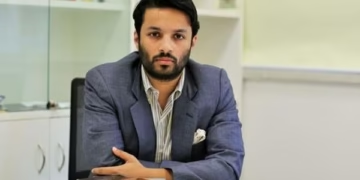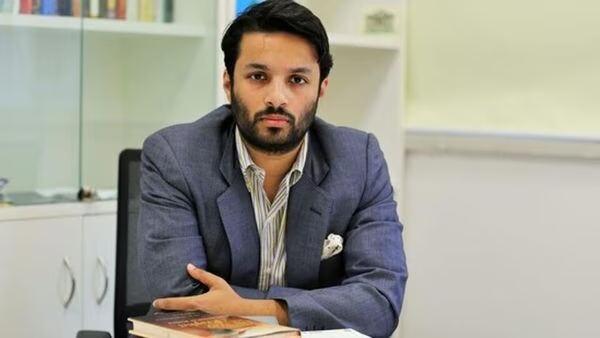Ashoka University professor Ali Khan Mahmudabad’s arrest has ignited controversy, with his social media post referencing Colonel Sofiya Qureshi, a prominent Army officer involved in Operation Sindoor, being labeled as a disparagement of women in uniform. The arrest, based on a complaint by a BJP youth wing leader, has drawn criticism from opposition parties and raised questions about free speech and political targeting.
Background and Charges
Mahmudabad was arrested from his residence in Delhi by Haryana Police, facing charges that include endangering India’s sovereignty. He was remanded to 48 hours in police custody. The accusations stem from a social media post in which Mahmudabad referred to the briefings conducted by Col Qureshi as “optics,” suggesting that such displays must be backed by tangible action. He further urged those applauding the military’s showcase of a Muslim woman officer to also demand protection for Muslims against mob lynchings and property demolitions.
Legal Defense and Supreme Court Plea
Following his arrest, Mahmudabad maintained that his comments were “misread” and asserted his “fundamental right to freedom of thought and speech.” He emphasized that he had praised the military’s efforts against terrorism and criticized those sowing communal discord.
Senior advocate Kapil Sibal, representing Mahmudabad, approached the Supreme Court seeking relief. The bench, comprising Chief Justice BR Gavai and Justice AG Masih, agreed to hear the plea by Wednesday. Sibal argued that the arrest was unwarranted, stressing that Mahmudabad’s comments were patriotic and aimed at promoting national unity.
Political Reactions
The arrest has drawn sharp reactions from the opposition, with Congress and Samajwadi Party leaders alleging that Mahmudabad was targeted due to his religious background. Congress spokesperson Pawan Khera condemned the arrest, stating that the professor’s “only mistake was his name,” suggesting that he was targeted for being a Muslim.
Khera further accused the ruling BJP of hypocrisy, pointing to the cases of Madhya Pradesh Deputy Chief Minister Jagdish Devda and state minister Vijay Shah. Khera alleged that Devda claimed the military “bows at the feet of Prime Minister Narendra Modi.” Devda later clarified, saying he meant that the “people of India bow… at the feet of the military.” Meanwhile, Vijay Shah reportedly made disparaging remarks linking Col Qureshi to the religion of the terrorists involved in the Pahalgam attack, insinuating that her selection was a strategic move to target the Muslim community.
Supreme Court Criticism of Shah’s Apology
The Supreme Court took a stern view of Vijay Shah’s comments, questioning the sincerity of his apology. Justice Surya Kant remarked that Shah’s statement appeared to be mere “crocodile tears” aimed at avoiding legal consequences. The court has ordered the formation of a Special Investigation Team (SIT), comprising three senior IPS officers, including a woman officer from outside Madhya Pradesh, to probe Shah’s remarks and broader implications.
Academic Community and Ashoka University’s Response
Ashoka University, where Mahmudabad is a faculty member, released a statement indicating that it was “ascertaining the details of the case” and would “cooperate fully with the authorities.” Meanwhile, the arrest has sparked outrage within the academic community, with faculty members and students expressing solidarity with Mahmudabad and decrying what they perceive as an attack on academic freedom and free speech.
Operation Sindoor and Its Aftermath
Operation Sindoor was launched in response to the April 22 Pahalgam terror attack, which claimed the lives of 26 civilians. The Indian Army targeted terrorist infrastructure in Pakistan and PoK, resulting in significant casualties. The briefings led by Col Sofiya Qureshi and Wing Commander Vyomika Singh were widely publicized to project India’s resolve against terrorism.
However, Mahmudabad’s post questioning the optics of the briefings and highlighting the disparity in treatment of Muslims in India drew the ire of the ruling establishment, leading to his arrest.
Broader Implications
The arrest of Ali Khan Mahmudabad underscores the contentious nature of public discourse in India, particularly on sensitive subjects like national security, military operations, and minority rights. Critics argue that the case highlights selective law enforcement against dissenting voices, while others view it as necessary to maintain public order and national unity.
As the Supreme Court prepares to hear Mahmudabad’s plea, the case has become a flashpoint in the ongoing debate over free speech, communal polarization, and the limits of dissent in contemporary India.
Also Read : Who is Yatri Doctor Navankur Chaudhary and Why Is He Making Headlines?















 Categories
Categories









